What Software Do Most Graphic Designers Use
Best graphic design software of 2021: Free and paid, for Windows, Mac, Linux, and online

The best graphic design software makes it simple and easy to set up designs ready for printing and distribution.
Creating artwork and other designs for print is a unique activity - and so you'll need specific software to match. Namely, a dedicated vector-based graphic design program.
While there is perfectly good drawing and painting software available, as well as photo editing software, it's all about having the right tool for the job.
Ideally, you'll want a tool that caters specifically to designing in vector graphics, that also features color editing options that will work in CMYK and HSB on top of the more common RGB.
This is especially a concern for the graphic design industry, where the images and designs used may need to be recreated in very large formats that require professional printing services.
Therefore it's essential for the graphic design packages being used to be able to cope with clear distinctions and demands inherent to all levels of print and publishing processes.
Desktop publishing software can often cover the same bases, but that's more focused on general publishing rather than image design. Additionally, while there are dedicated logo designers out there, often a design team will need to be able to do more than just that.
Here then are the best in dedicated graphic design software platforms.
Additionally, you may be interested in the best laptops for graphic designers.

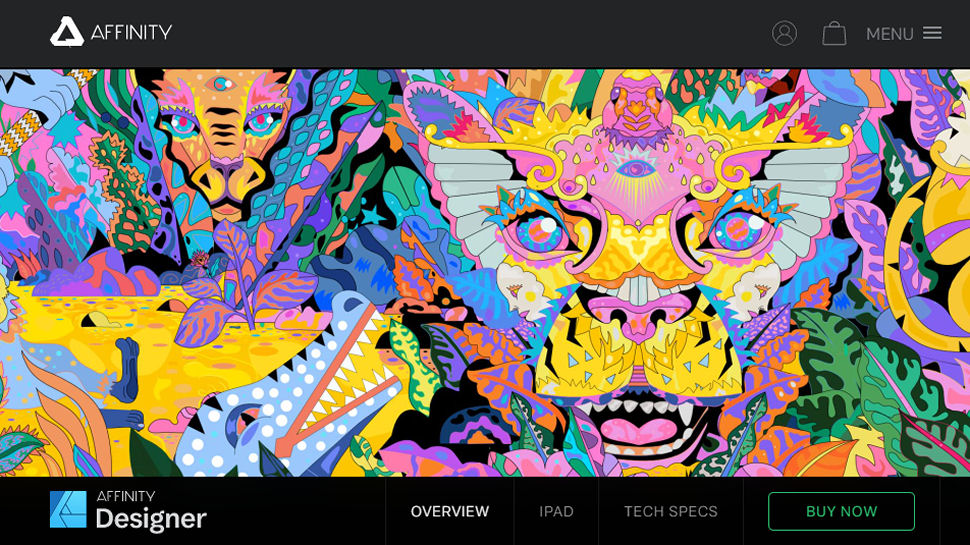
1. Affinity Designer
Built for creating professional artwork for screen or print
Reasons to buy
+Inexpensive +Collaboration as standard +Windows PC and Mac
As a replacement for DrawPlus X8, Affinity Designer isn't a rehash and was built from the ground up over a five-year development project by Serif.
Specifically aimed at professional designers and how they work, this software can handle a very wide scope of design tasks, including web, branding, concept art, typography and even repeating patterns, as you might need on ceramics, wallpaper or soft furnishings.
Inherent cloud functionality also makes it a good option for teams of designers working towards a common goal. And all this functionality can be yours for a very modest price on Windows PC or Apple Mac.

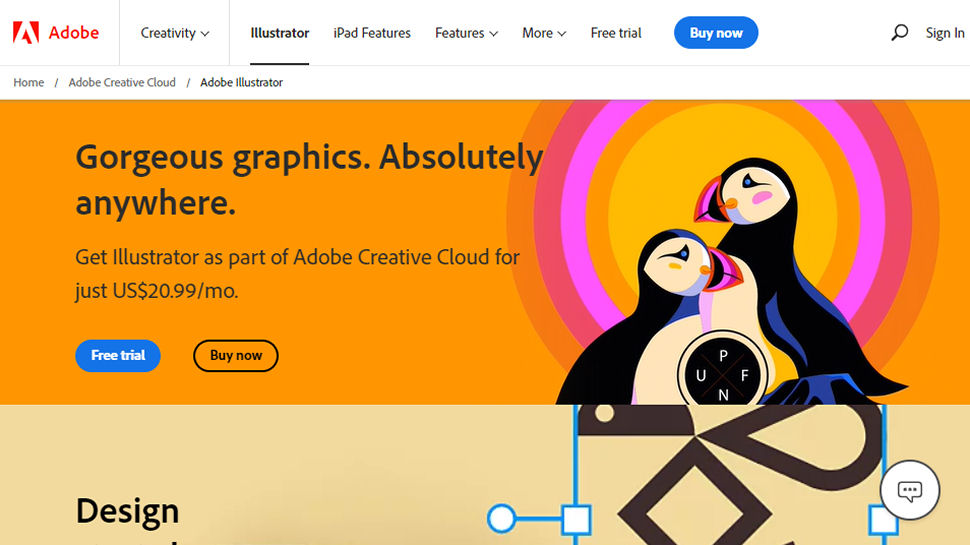
2. Adobe Illustrator CC
Now on the 22nd version since 1985
Reasons to buy
+Very powerful +Consistent UI with Photoshop +Windows and Mac
Reasons to avoid
-Expensive
Essentially, Adobe Illustrator is the vector version of Photoshop, and the two share many common tools and functions to aid designers who use both.
However, if you want to design graphics that are can be rescaled from a postage stamp to a giant billboard, then Illustrator is certainly the tool of choice.
There was a time when you could buy Adobe Illustrator outright, but Adobe now only offers this product on the Creative Cloud (CC) suite, and it isn't cheap.
It might have a powerful feature set, regular updates and be available for both Apple Mac and Windows PC, but the cost is prohibitive for occasional users.

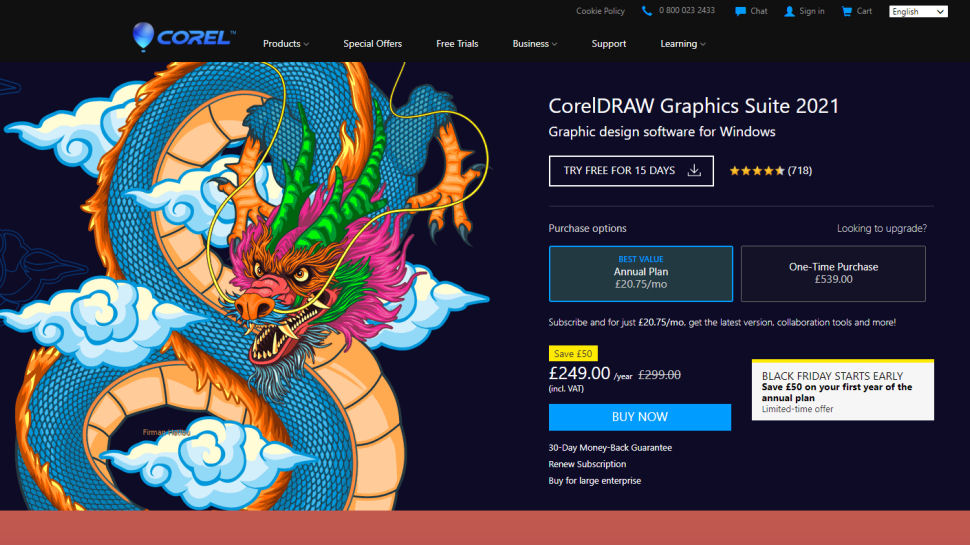
3. CorelDRAW
The daddy of vector design applications
Reasons to buy
+Easy to learn and use +Massively featured
Reasons to avoid
-Expensive
The CorelDRAW Graphics Suite is actually a software bundle rather than a single application.
The package includes Photo-Paint for photo manipulation, AfterShot to handle RAW files, PowerTRACE to convert bitmap images into vectors, and FontManager for organizing the text styles you do actually use.
The main star, of course, is CorelDRAW itself, which isn't just a vector-drawing package but also includes a desktop publishing feature as well, so you can design projects with a multi-page layout.
The latest version includes a number of improvements, such as for handling web graphics, editing vector effects, and the template menu has been simplified. In addition to these, is the ability to easily search through your images as thumbnails.
Another plus is that after a break it has returned to the Mac with a fully functional version.
Overall, the CorelDRAW Graphics Suite offers a veteran range of software that remains very up-to-date, and widening its use to Apple users as well as Windows can only be a plus.
If you'd like to learn more, read our full CorelDRAW review.

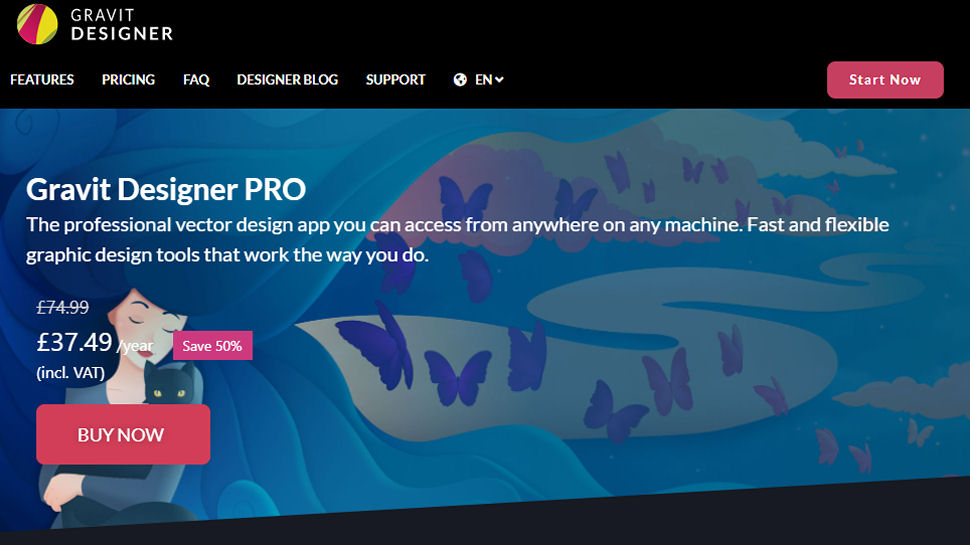
4. Gravit Designer
A cross-platform vector editor that's free
Reasons to buy
+Free +Cross-platform and online +Easy to learn
Reasons to avoid
-Complex designs make it slow
Due to the complexity of vector illustrations, most software for creating them is locally installed, but Gravit Designer has online options too.
The cloud-based version that runs from any browser and can automatically save to the online storage or locally.
Alternatively, on Windows PC, Apple Mac, Linux and Chrome OS (which you'll find on a Chromebook), there are installable releases that can better utilise the computer hardware.
Our experience is that the online version can get slow with complex designs, but the locally installed versions cope much better. However, with a limited free version to use, there isn't any excuse for not giving it a try. There are plenty of impressive examples designers have created using Gravit Designer that prove it can be very effective at some jobs.
Gravit Designer PRO allows for unlimited online storage, increases resolution to upto 300dpi, increases the print options to CMYK and HSB on top of RGB, plus there's also the ability to work offline, advanced export options, and version history, all available for a reasonable yearly subscription.

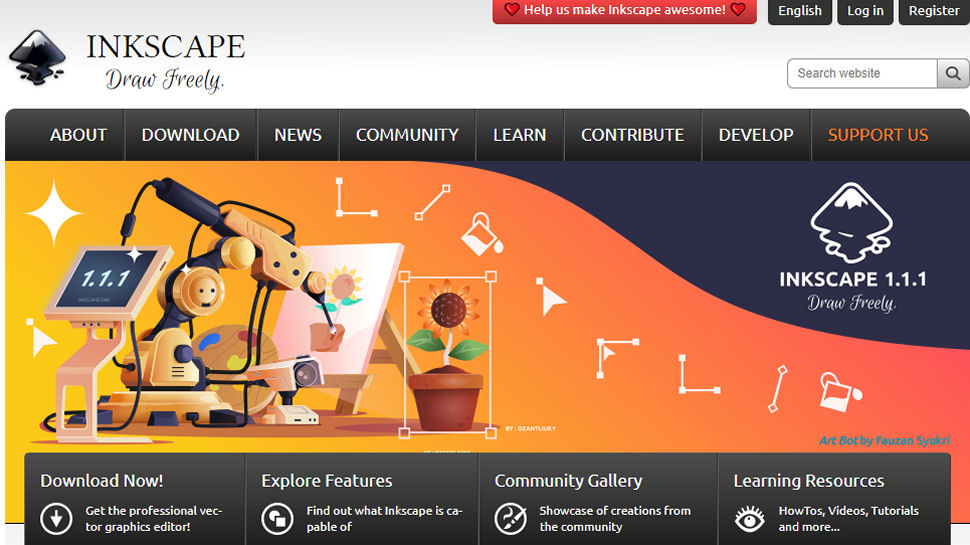
5. Inkscape
A free tool with plenty of useful features
Reasons to buy
+Free +On Windows, Linux and Mac
Reasons to avoid
-Can be slow at times
Most business people shy away from free software for often valid reasons, but Inkscape is certainly worth looking at before you commit to buying CorelDRAW or an Adobe CC subscription.
It's a vector design tool that offers broad file support, extensive text manipulation and both Bezier and Spiro curve types. It also has an extension model that allows new features to be easily installed, and there are some amazing ones available.
The only reservations we have are that even on a powerful PC it can be slow at times when a complicated process involves rendering.
As a GPL licensed app, along with Windows, Linux and Apple Mac versions, you can also download the source code and compile it for whatever version of Linux you use.
To find out more, read our full Inkscape review.

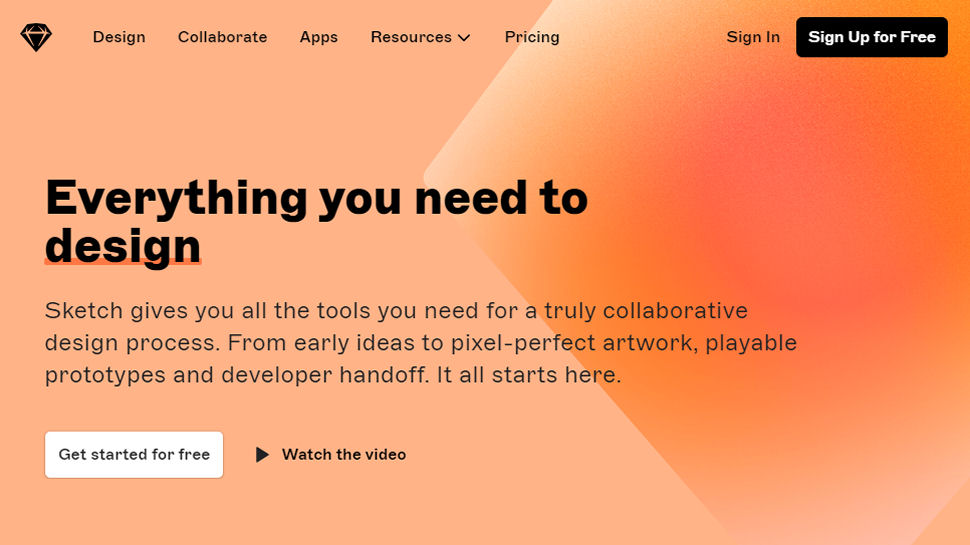
6. Sketch
A vector editor designed purely for Mac
Reasons to buy
+Easy to learn +Regular updates
Reasons to avoid
-Mac only
Rather than the scatter-gun approach of other applications, the creators of Sketch built a tool to address a relatively narrow requirement.
Sketch is focused on screen design, specifically creating the icons and interface elements for websites and applications. And, as the software is exclusively available for the Apple Mac, mostly designers working on iPhone, iPad and macOS applications are going to find it useful.
That said, it can be used more generally, but its strength is creating slick user interfaces.
Sketch is available for a single user license. However, licenses for multiple devices are available.

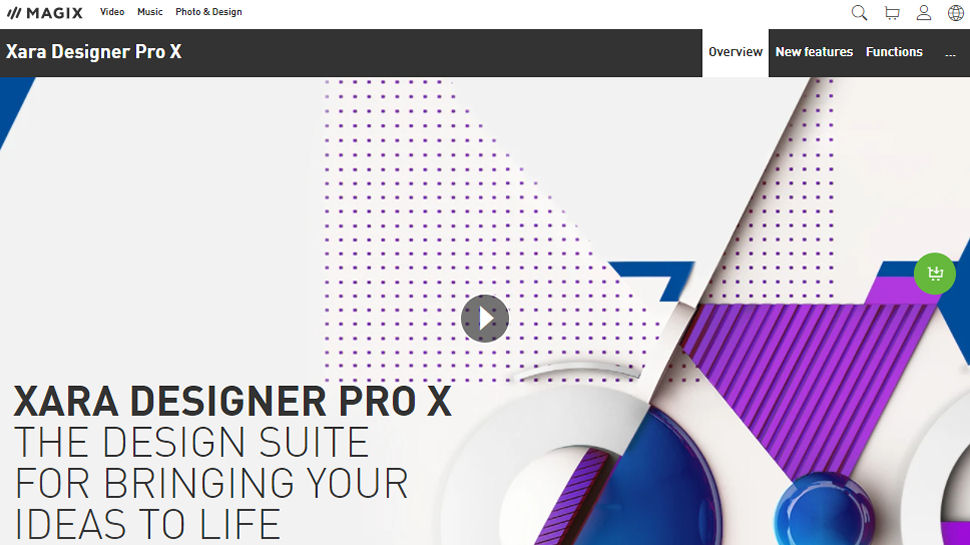
7. Xara Designer Pro X
A one-stop creative document solution
Reasons to buy
+Affordable +Extensive templates
Reasons to avoid
-Windows only
The company behind Xara started out on the Atari ST and Acorn Archimedes computers in the 1980s, before focusing its efforts on the PC when Windows came along.
Its latest version, Xara Designer Pro X, is a comprehensive design tool that can work with both bitmaps and vectors with equal aplomb. That means it can handle DTP (desktop publishing), graphic design, illustration and photo manipulation tasks in a single tool.
For those wanting to mock something up rapidly, a license gives you access to over a million archive photos and illustrations to incorporate, along with hundreds of template layouts and thousands of design elements.
The price sees frequent discounts on offer. Additionally, a cut-down version called Xara Photo & Graphic Designer is available and again is frequently discounted. Pro X can also be found even cheaper on Steam.
We've also highlighted the best laptops for video editing and music production .
What is vector Illustration?
We put the question to Klaus Vossen, Senior Product Manager for CorelDraw (CorelDRAW review here). So what exactly is a vector and vector illustration and how does it differ from a bitmap.
Let's start with Vector vs. Bitmap. Bitmaps, also known as raster images, are created using pixels, which are small dots of color. Think photographs! And while bitmap images are essential to any design workflow, it's important to know that they can vary tremendously in terms of size and image quality – unfortunately running the risk of becoming blurry when enlarged.
On the other hand, vector images are made up of points, lines, and shapes that can be edited to precise detail, and because they're based on mathematical equations they can be scaled indefinitely to any size. Extremely versatile, a single vector image, let's say a logo, can be printed anywhere from the corner of an envelope to a roadside billboard – all using the same original file.
So now that we know what a vector file is, it's easy to understand why they're so important to a graphics workflow. And while there are plenty of apps that offer vector illustration tools, if you want professional results with high-quality output, you need professional software.

Mark is an expert on displays, reviewing monitors and TVs. He also covers storage including SSDs, NAS drives and portable hard drives. He started writing in 1986 and had contributed to MicroMart, PC Format, 3D World among others.
What Software Do Most Graphic Designers Use
Source: https://www.techradar.com/best/best-graphic-design-software
0 Response to "What Software Do Most Graphic Designers Use"
Post a Comment